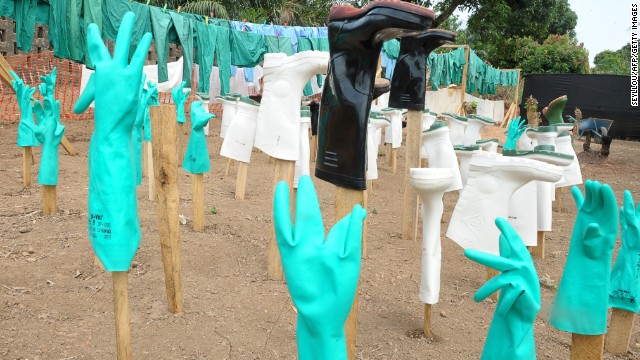As Nigeria awaits the official certification as an Ebola-free country by the World Health Organisation (WHO) after it successfully contained the outbreak of the deadly viral disease, fears are rife that some visible lapses in the preventive efforts could reverse the gains made in this regards.
This is the outcome of investigations carried out by Sunday Independent, which revealed that the Federal Ministry of Education could be the culprit here.
Although the Minister of Health, Professor Onyebuchi Chukwu, insisted in a response to Sunday Independent that the Federal Government has not slowed down its efforts to check the deadly disease, which claimed eight lives, visits to some schools across the country by our correspondents have revealed obvious lapses in the monitoring of the preventive measures in schools, even as others are trying to keep up with standard.
This was particularly observed in the Federal Capital Territory (FCT), where some public and private schools partially resumed before the October 8 date after a forced break to avoid the spread of the Ebola Virus Disease (EVD), which broke out in July.
Sunday Independent’s findings have shown that the Department of Basic and Secondary Education at the Federal Ministry of Education, has particularly not been proactive in inspecting and monitoring the level of compliance of the preventive measures schools were asked to put in place against the Ebola disease.
Our correspondent, who went round some schools few days after their resumption, observed that the students and teachers were no longer observing the basic hygiene procedure of washing their hands and sanitising them as well.
One of the LEA Primary Schools, situated in Nyanya, a suburb of Abuja, had water problems, so they had practically packed up the buckets and other materials given to them by the FCT Administration.
When our reporter sought further clarification from the ministry as to why they never bothered to visit schools to monitor compliance, the Director, Basic and Secondary Education, said he was not competent to talk on the issue, adding that only the Ministry of Health officials had been mandated to do so.
In Anambra State, the initial apprehension caused by the Ebola outbreak seems to have died down in primary and secondary schools.
In schools visited by our correspondent in Awka, the state capital, pupils and students, as well as teachers, were seen going about their normal activities, just like it was before the outbreak.
In spite of assurances given by the state government that most of the schools would be equipped with infra-red thermometers and other equipment, it was observed that most schools were yet to take delivery of them.
Also, the sanitary and hygiene condition of the schools remained poor, with no meaningful effort to improve the situation.
When our correspondent visited Igwebuike Grammar School and Government Girls Secondary School (GSS), Amenyi, Awka, on Thursday, it was discovered that the toilets lacked water and even basins for students to wash their hands after using the facilities.
One of the teachers at GSS, Amenyi, who spoke on condition of anonymity, said, “Initially, when we resumed, there was the fear about Ebola, but you can see that the fear has since disappeared.
“Government promised to give us equipment to fight Ebola, but look around and see if they kept their promise.
“We did not get any equipment here. The buckets you see around, we bought them ourselves.”
The level of caution, however, remains high in Lagos, as our Correspondents found during visits to schools in the state as most of them had been equipped with screening devices.
Officials of private and some public schools were seen administering sanitary wares and EVD infection control materials to screen teaching and non-teaching staff as well as students.
This was particularly obvious at Crusaders Model Schools, Alagbole; Mascot Schools, Akute; Ojodu Primary School; Ojodu Junior High School; Ojodu Junior Grammar School, and Babs Fafunwa Millennium Grammar School, Agidingbi.
At the Ifako Comprehensive Senior School, and Ifako Comprehensive Junior School, the students, who formed a long queue, had to wait patiently under the morning sun, as there was only one thermometer each at the two schools.
Though no official of the supervising ministry or Ministry of Health were seen in all the schools visited, it was observed that the trained school officials initially had challenges with the thermoscan device for temperature measure.

